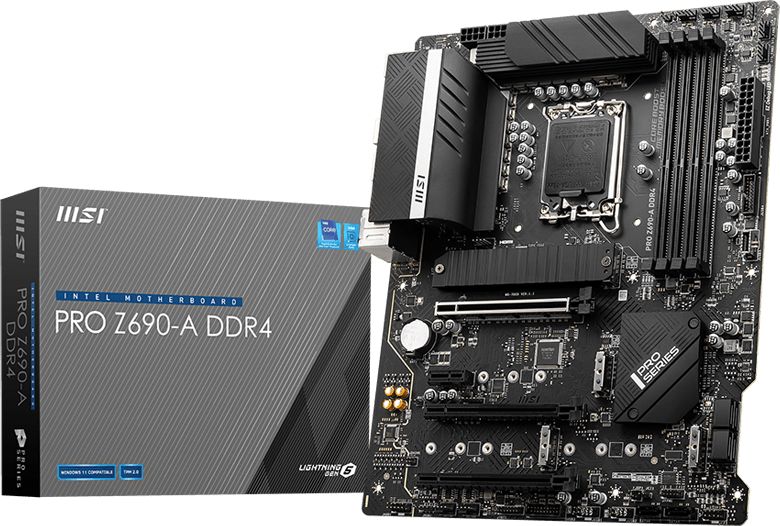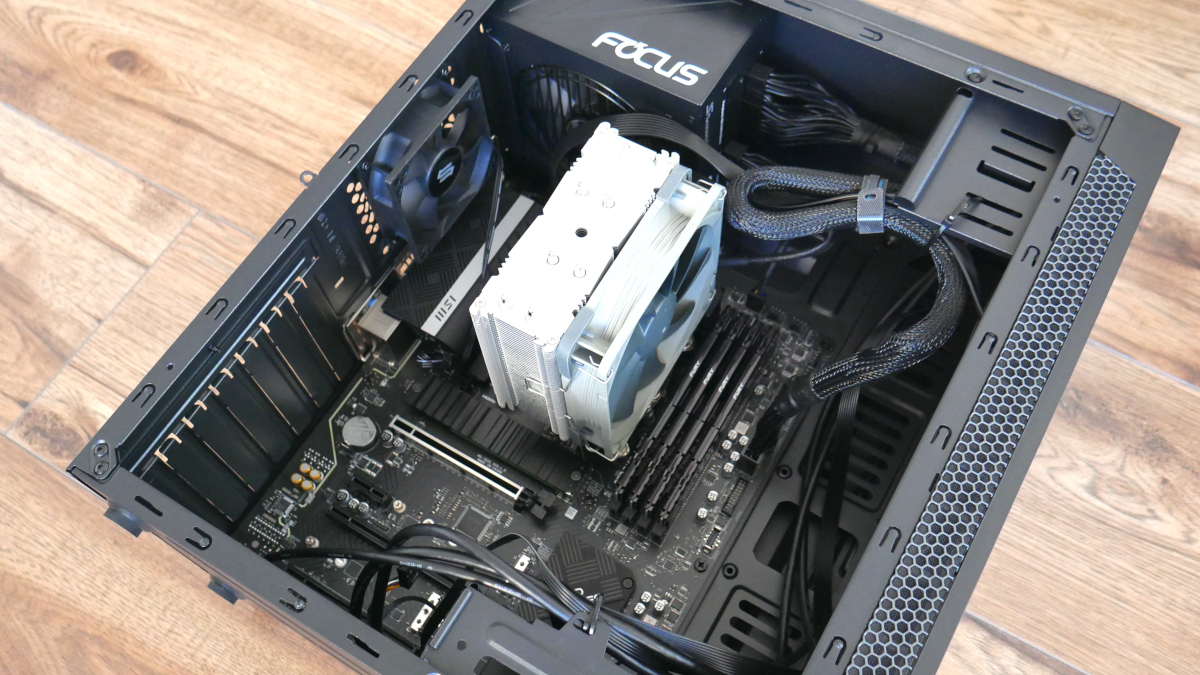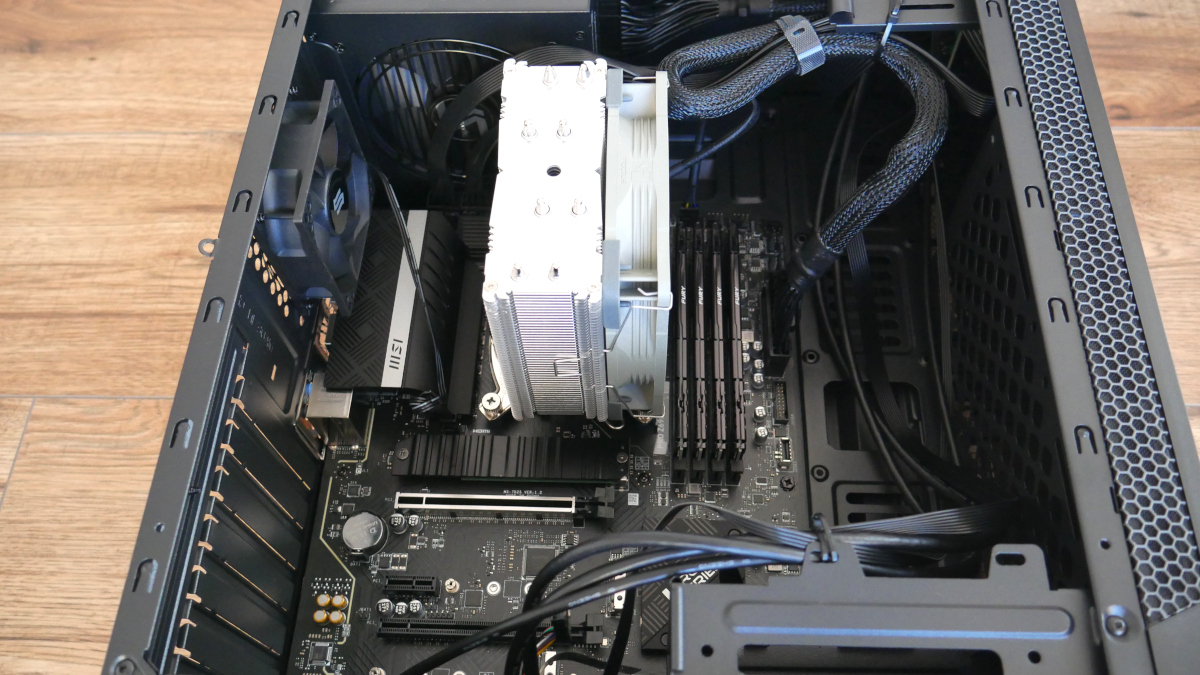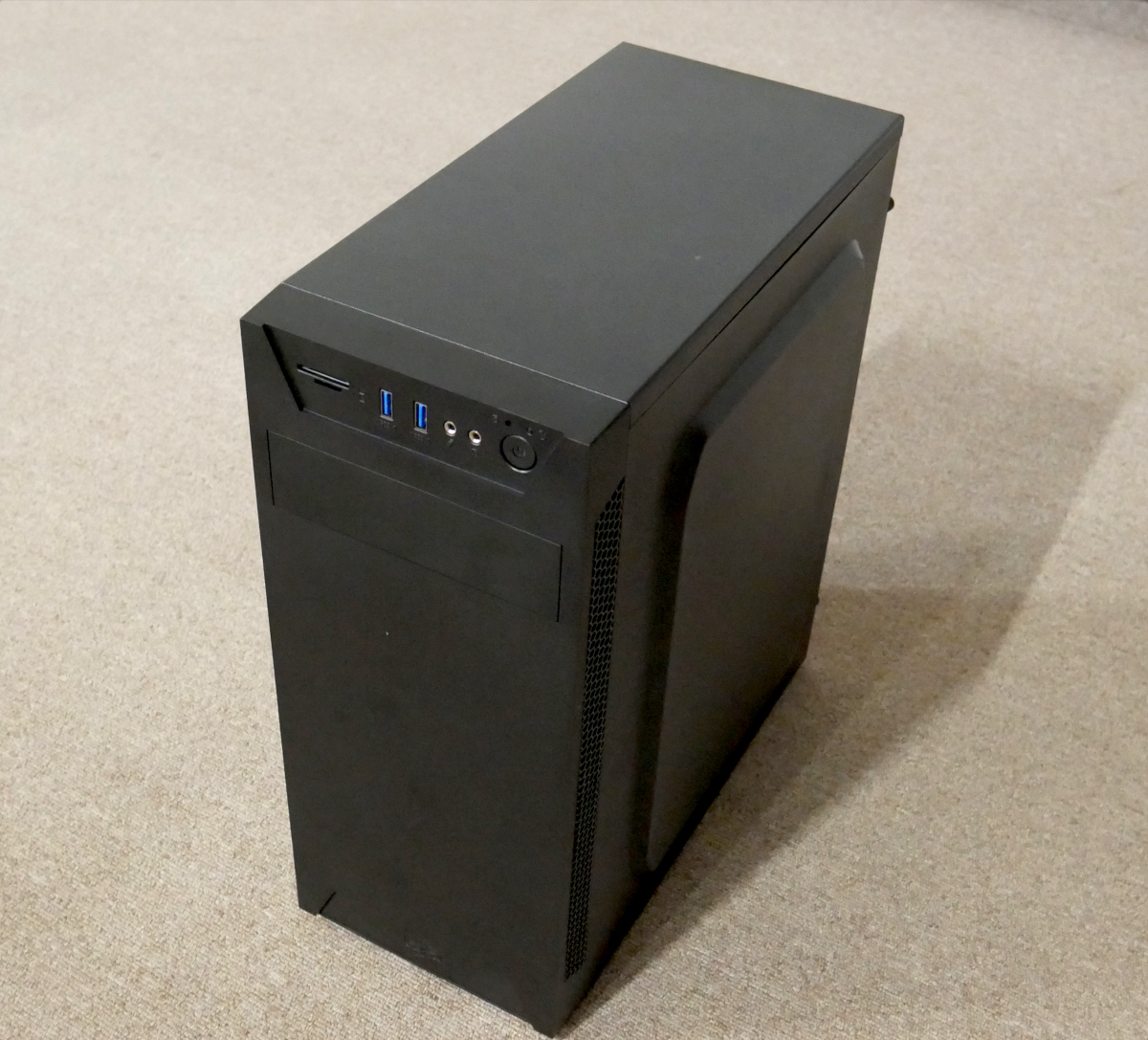The Dasharo FidelisGuard Z690 is the first Qubes-certified desktop computer!
It is our pleasure to announce that the Dasharo FidelisGuard Z690 has become the fourth Qubes-certified computer for Qubes 4.X and the first Qubes-certified desktop computer ever!
(In related news, the Dasharo User Group #1 and Dasharo Developers vPub 0x6 virtual event is tomorrow and will include an interview with our project lead, Marek Marczykowski-Górecki!)
About the Dasharo FidelisGuard Z690
The Dasharo FidelisGuard Z690 is a full desktop PC build that brings the Dasharo open-source firmware distribution to the MSI PRO Z690-A DDR4 motherboard with Qubes OS preinstalled. The full configuration includes:
| Part | Model Name |
|---|---|
| CPU | Intel Core i5-12600K, 3.7GHz |
| Cooling | Noctua CPU NH-U12S Redux |
| RAM | Kingston Fury Beast, DDR4, 4x8GB (32 GB Total), 3600 MHz, CL17 |
| Power Supply | Seasonic Focus PX 750W 80 Plus Platinum |
| Storage | SSD Intel 670p 512 GB M.2 2280 PCI-E x4 Gen3 NVMe |
| Enclosure | SilentiumPC Armis AR1 |
This computer comes with a “Dasharo Supporters Entrance Subscription,” which includes the following:
- Full access to Dasharo Tools Suite (DTS)
- The latest Dasharo releases issued by the Dasharo Team
- Special Dasharo updates for supporters
- Dasharo Premier Support through an invite-only Matrix channel
- Influence on the Dasharo feature roadmap
For further details, please see the Dasharo FidelisGuard Z690 product page.
Special note regarding the need for kernel-latest
Beginning with Qubes OS 4.1.2, the Qubes installer includes the kernel-latest package and allows users to select this kernel option from the GRUB menu when booting the installer. At the time of this announcement, kernel-latest is required for the Dasharo FidelisGuard Z690’s graphics drivers to function properly. Therefore, all potential purchasers and users of this model should be aware that they will have to select a non-default option (Install Qubes OS RX using kernel-latest) from the GRUB menu when booting the installer. However, since Linux 6.1 has officially been promoted to being a long-term support (LTS) kernel, it will become the default kernel at some point, which means that the need for this non-default selection is only temporary.
About Dasharo
“Dasharo is an open-source firmware distribution focusing on seamless deployment, clean and simple code, long-term maintenance, professional support, transparent validation, superior documentation, privacy-respecting implementation, liberty for the owners and trustworthiness for all.” Learn more about Dasharo.
Dasharo is a registered trademark of and a product developed by 3mdeb.
About 3mdeb
3mdeb and the Qubes OS Project have been partnering together for years to hold Qubes OS Summits. Michał Żygowski shared the story with us in Qubes OS Summit: History from organizer’s perspective. You can watch videos from the 2022 summit here and here. 3mdeb has also been instrumental in recent work on TrenchBoot Anti Evil Maid for Qubes OS. Learn more about 3mdeb.
What is Qubes-certified hardware?
Qubes-certified hardware is hardware that has been certified by the Qubes developers as compatible with a specific major release of Qubes OS. All Qubes-certified devices are available for purchase with Qubes OS preinstalled. Beginning with Qubes 4.0, in order to achieve certification, the hardware must satisfy a rigorous set of requirements, and the vendor must commit to offering customers the very same configuration (same motherboard, same screen, same BIOS version, same Wi-Fi module, etc.) for at least one year.
Qubes-certified computers are specific models that are regularly tested by the Qubes developers to ensure compatibility with all of Qubes’ features. The developers test all new major versions and updates to ensure that no regressions are introduced.
It is important to note, however, that Qubes hardware certification certifies only that a particular hardware configuration is supported by Qubes. The Qubes OS Project takes no responsibility for any vendor’s manufacturing, shipping, payment, or other practices, nor can we control whether physical hardware is modified (whether maliciously or otherwise) en route to the user.



